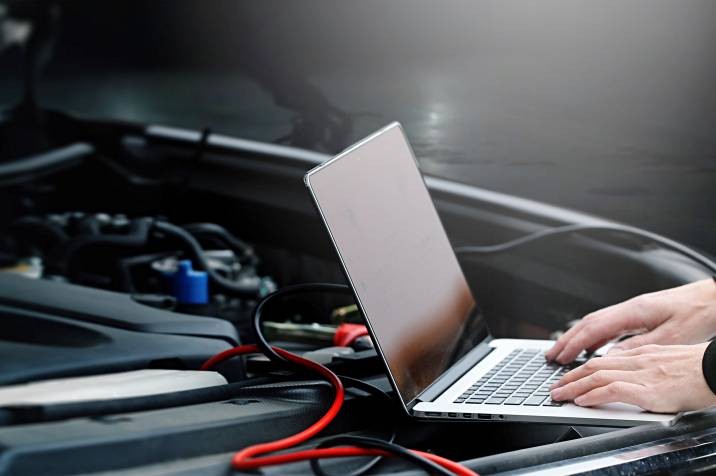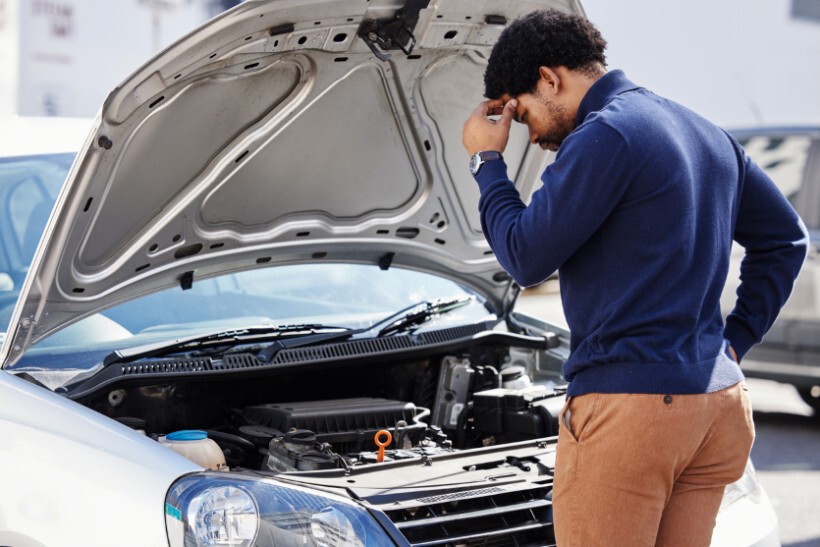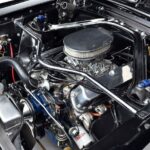It’s a scenario familiar to many drivers: the check engine light illuminates on your dashboard, signaling potential trouble under the hood. Understanding what’s wrong requires a car computer diagnostic test. But how much does a car computer diagnostic cost? Typically, you can expect to pay anywhere from $20 to over $400 for this service. The final price depends on several factors, including where you go for the service, the type of vehicle you own, and the complexity of the diagnostic process itself.
Getting a car diagnostic test is a smart move whenever you suspect an issue with your vehicle, especially if you’re considering buying a used car. While basic tests might start around $40, comprehensive diagnostics can reach upwards of $400. Keep in mind that labor charges can also influence the total cost, particularly if the mechanic charges by the hour. Additionally, the diagnostic process might uncover minor issues that can be addressed immediately with simple repairs or maintenance, such as tightening connections, replacing spark plugs, or changing filters.
Decoding Car Diagnostic Tests: What Are They and What Do They Involve?
Modern vehicles are sophisticated machines equipped with a network of onboard sensors and computers. When these sensors detect a problem, the check engine light often turns on as a warning. A car diagnostic test is essentially a health check for your vehicle’s computer system. Mechanics use specialized tools to connect to your car’s onboard computer and retrieve diagnostic trouble codes (DTCs). These codes act like clues, indicating which systems or components are experiencing issues. This computer-aided analysis helps pinpoint areas that require further manual inspection and repair.
What a Full Car Diagnostic Test Scans
A comprehensive car diagnostic test typically covers a wide range of your vehicle’s critical systems, providing a detailed overview of its health. Expect a thorough scan to include reports on:
- Engine Performance: Checks for issues like misfires, fuel delivery problems, and overall engine efficiency.
- Electrical System: Examines the battery, alternator, wiring, and other electrical components for faults.
- Sensors: Evaluates the functionality of various sensors throughout the vehicle, crucial for accurate data collection and system operation.
- Transmission: Assesses the transmission’s performance, looking for slipping, rough shifting, or other transmission-related problems.
- Braking System: Checks components like ABS (Anti-lock Braking System), brake sensors, and overall brake system health.
- Exhaust System: Monitors emissions levels and catalytic converter efficiency to ensure environmental compliance and optimal performance.
- Fuel Injection System: Analyzes fuel delivery, injector performance, and fuel pressure for efficient combustion.
- Throttle Control: Evaluates the electronic throttle system for responsiveness and proper operation.
- Ignition System: Checks spark plugs, ignition coils, and related components for proper engine firing.
- Air Conditioning & Climate Control: Diagnoses issues within the AC system, including compressor function and refrigerant levels.
- Airbags and Safety Systems: Verifies the functionality of airbags, seatbelt pretensioners, and other safety features.
It’s important to understand that diagnostic tests are not magic solutions that instantly reveal the exact problem. Instead, they are powerful tools that guide mechanics to the source of the issue, helping them to isolate the problem area and prevent further damage by facilitating targeted inspections and repairs.
Car Diagnostic Cost Breakdown: What to Expect to Pay
While the initial cost of a car diagnostic test might seem like an added expense, it can actually save you money in the long run by preventing more extensive and costly repairs down the line. Here’s a general overview of car diagnostic test prices:
| Car Diagnostic Test Category | Typical Cost Range | Description |
|---|---|---|
| Basic/Low-End | $20 – $65 | Often a quick code scan, potentially offered at auto parts stores or smaller shops. |
| Mid-Range | $65 – $160 | More in-depth diagnostics at independent repair shops or some dealerships. |
| Comprehensive/High-End | $160 – $400+ | Detailed diagnostics at dealerships or specialized service centers, particularly for luxury or high-performance vehicles. |
Note: These are estimated costs and can vary based on location, service provider, and vehicle type. Always confirm pricing with your chosen mechanic or service center.
Factors Influencing the Cost of a Car Diagnostic Test
Several factors can affect how much you’ll pay for a car diagnostic test. Understanding these factors can help you anticipate costs and make informed decisions.
Location, Location, Location
The geographical location of the service center plays a significant role in pricing. Areas with higher costs of living and greater demand for automotive services, like major metropolitan areas, may have higher diagnostic fees. Conversely, less populated or more competitive markets might offer more budget-friendly options.
Mechanic’s Expertise and Shop Reputation
Just like in any profession, experience and expertise come at a price. Mechanics with advanced certifications, specialized training, and years of experience may command higher labor rates. Similarly, reputable auto repair shops with state-of-the-art equipment and a strong track record of quality service may also charge more for diagnostics. However, investing in experienced professionals can often translate to more accurate diagnoses and effective repairs, potentially saving you money and hassle in the long run.
Vehicle Make and Model: Complexity Matters
The make and model of your vehicle is another key determinant of diagnostic costs. Diagnosing issues in common, mass-market vehicles is generally more straightforward and less expensive. However, luxury vehicles, high-performance cars, and vehicles with advanced technology often require specialized diagnostic equipment and expertise. Mechanics working on these types of vehicles may need to invest in specific tools and training, which can lead to higher diagnostic fees. For luxury or specialty vehicles, consulting with a dealership or a mechanic specializing in those brands might be a worthwhile investment.
When Should You Schedule a Car Diagnostic Test?
Knowing when to get a car diagnostic test can save you from potential breakdowns and costly repairs. Here are key scenarios to consider:
- Check Engine Light Illumination: This is the most obvious sign. When your check engine light turns on, it’s your car’s way of telling you something is amiss. A diagnostic test is crucial to decipher the underlying issue.
- Pre-Purchase Used Car Inspection: Before buying a used car, a diagnostic test is highly recommended. It can reveal hidden problems that might not be apparent during a visual inspection, potentially saving you from inheriting someone else’s car troubles.
- Preventive Maintenance Schedule: Incorporating diagnostic tests into your regular maintenance schedule, even without apparent issues, can be a proactive approach. Preventive diagnostics can identify minor problems before they escalate into major repairs, ensuring your vehicle remains in optimal condition.
- Unusual Vehicle Behavior: If you notice any unusual symptoms like decreased fuel efficiency, strange noises, rough idling, or changes in handling, even without the check engine light on, a diagnostic test can help identify the root cause.
Finding a Reliable Car Diagnostic Service
When it’s time for a car diagnostic test, you have several options for service providers:
- Dealerships: Dealerships often have specialized equipment and factory-trained technicians, particularly beneficial for newer or luxury vehicles. However, they can sometimes be more expensive.
- Independent Repair Shops: Independent mechanics can offer more competitive pricing and personalized service. Look for shops with ASE certifications and positive customer reviews.
- Mobile Diagnostic Services: For convenience, mobile mechanics can come to your location to perform diagnostic tests. This can be a great option for busy individuals or situations where taking your car to a shop is difficult.
- Auto Parts Stores (Limited): Some auto parts stores offer free basic code scans, but these are usually very limited and not a substitute for a comprehensive diagnostic test by a qualified mechanic.
By understanding the factors that influence the cost of a car computer diagnostic and knowing when to get one, you can proactively maintain your vehicle and address potential issues before they become major headaches. Don’t wait for minor problems to turn into costly repairs – schedule a diagnostic test when needed to keep your car running smoothly and your wallet happy.



